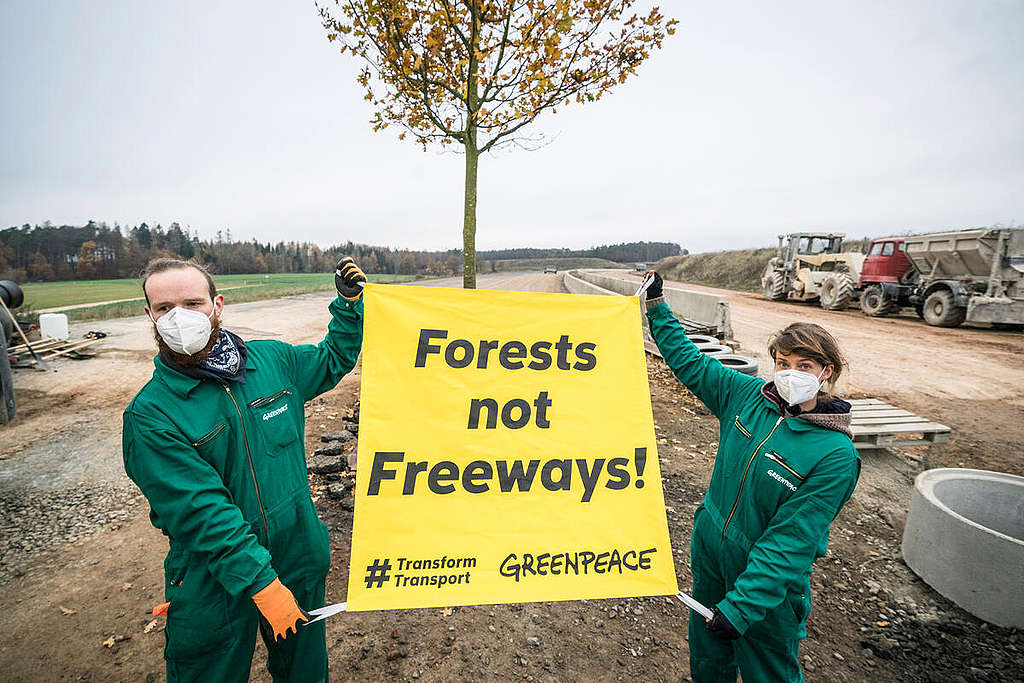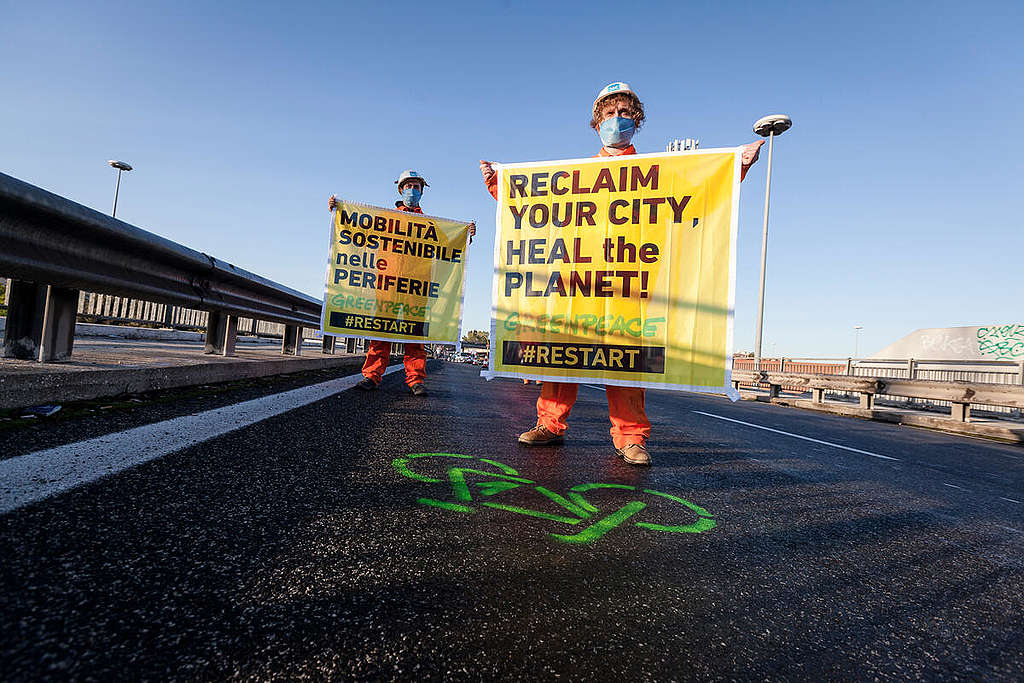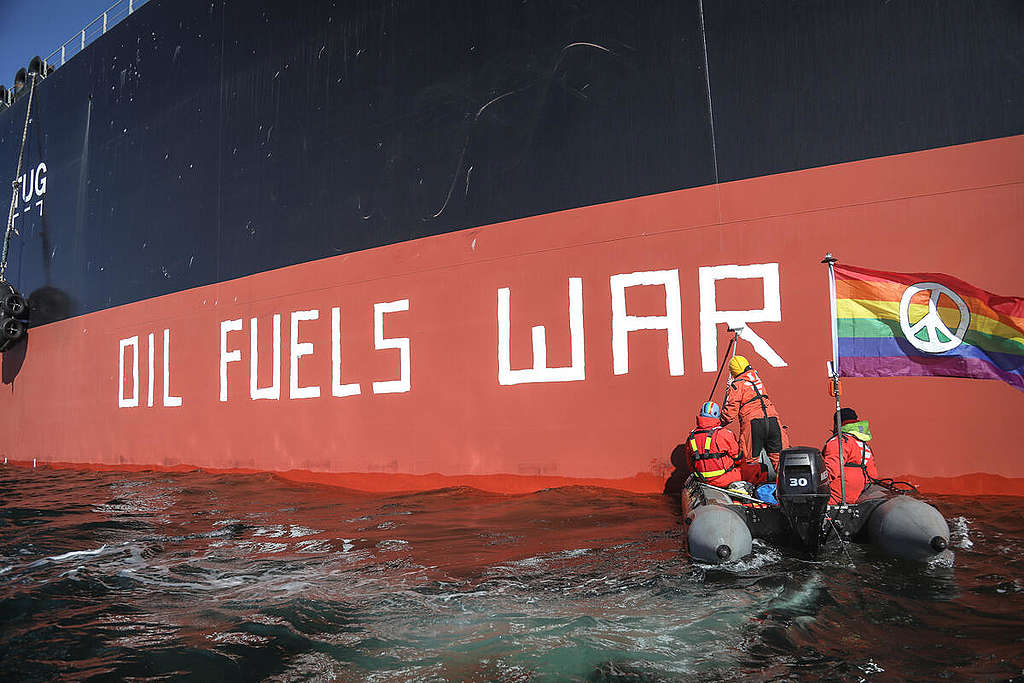
With extreme heat, floods and fires, the highest inflation in decades, unprecedented energy price-hikes, a looming energy shortfall and a war on European soil, the world feels like it's at a crossroads. We certainly need all hands on deck to confront the multiple crises we face together. In the midst of these chaotic times, there is one area in our society where all the threads come together: our transport system. It is one of the roots of our oil dependence, causing many of the problems we face.
Let's take a closer look at how our mobility system connects to these crises and how we and our governments must use it to confront them.
Climate and nature crises
With record heat waves, massive droughts, floods and raging fires, this summer the damaging consequences and costs of the climate crisis have been more visible than ever before.

Our oil-guzzling transport system is a major driver of the climate crisis - accounting for almost 30% of the EU's total greenhouse gas emissions and 23% of global emissions - with high costs for our health and well-being from air pollution and noise to our environment.
The direct exploitation of our natural resources, including the extraction of oil, is one of the biggest threats to our natural world. Transport is the main reason for oil extraction and production worldwide, with around 60% of oil used for transport globally, and almost 70% in the EU. The production of agro-fuels for cars, or the construction of new infrastructure for polluting transport like airports and highways further threatens wildlife habitats and forests.
Despite these grim impacts on our climate and nature, governments give transport and fossil fuel industries financial and policy privileges to help them make huge profits at the expense of people. Meanwhile, these companies are betting mainly on false solutions like carbon offsetting or ramping up the production of agro-fuels which are largely fuelling deforestation, biodiversity loss, environmental destruction and human rights abuses.
Energy crisis
Everyone is talking about the need to save energy because of skyrocketing energy costs in recent months and the threat of shortages. But why are most governments shying away from touching transport? No other sector in Europe consumes more energy than transport.
Despite a bid to wean Europe off Russian oil, which makes up about a quarter of the EU's oil consumption, governments have introduced no energy cuts for transport. Instead they still allow tax benefits and subsidies for ultra energy-intensive private jets and short-haul flights, and are busy looking for new oil suppliers with questionable human rights records to plug the gap, sparking a new global race to reactivate oil drilling fields and the sale of new extraction licenses, as recently announced by the Democratic Republic of Congo.
While people and the planet pay the price for transport's oil-addiction, the fossil fuel industry has jumped on the opportunity to reel in billions of record excess profits from selling their dirty products, and to expand their false solutions and greenwashing, such as new oil extraction, switching gas for oil and coal, or alternative fuels which are extending the destruction of our planet and natural world.
Inequality & the cost-of-living crisis
Along with energy, prices for almost everything have gone up, from food to housing, threatening livelihoods and pushing household finances to the brink. With transport and mobility constituting the second largest expense for European households, increased spending on mobility needs greatly diminishes the resources of European households available for non-energy related spending.
In regions which lack accessible and affordable public transport, where people are forced to own a car, rising mobility costs mean that everyday needs and full participation in society are no longer affordable for low-income households.

War and conflict

Our transport system is rooted in fossil fuels that have a history of driving war and conflicts. The war in Ukraine has tragically reminded us that addiction to dirty fossil fuels is leading to deaths and unimaginable suffering across the globe.
Oil exports are Russia's biggest source of income and are funding Putin's war chest. While Europe has imposed a partial embargo on Russian oil, this embargo came too late, allowing Russia to find new buyers. Despite the phase-out of Russian oil, Europe is still spending around 825 million euros a day importing oil from conflict-ridden countries with questionable human-rights records for its transport.
Now what? Let's lay down the tracks for a just, sustainable mobility system
There's no doubt that our fossil fuel-addicted transport system is deeply entangled with the many crises we're facing. But we can use it to address them and kickstart the transformation to a just, sustainable and peaceful future.
First and foremost, we must drain the oil from our mobility system by reducing excessively polluting transport such as short-haul or private jet flights and shifting from fossil fuel-powered private transport to community-serving, sustainably powered trains, public and active transport. With some countries and cities across Europe already making rail and public transport free or more affordable, there has been a decrease in car usage, fewer traffic jams and a reduction in people's energy and cost-of-living bills.
The European transport sector could be virtually oil-free and greenhouse gas emissions-free by 2040: research commissioned by Greenpeace sets out a roadmap for EU decision makers on how to fully decarbonise the mobility system in less than 20 years, without having to rely on false solutions such as agrofuels.
While we free ourselves from the stranglehold of the fossil fuel industry, we also have to be vigilant and shield our transport system from the allure of false promises being pushed by industries with vested interests, pretending to offer alternative solutions to oil-based fuel, such as agrofuels, hydrogen, or nuclear power that are either inefficient or harmful to nature, biodiversity and put humanity's future further at risk.
And last but not least, let's make the transformation of our transport system fair! Governments must take away the unfair privileges of polluting transport companies such as subsidies and tax cuts, make sure that those who are profiteering big time from the current crises pay, and redistribute these funds to enable a green and just transformation of our transport system. This means ensuring support to those who are struggling to make ends meet in their daily lives, and a just transition for workers from polluting industries into green mobility jobs.
We all depend on mobility to meet our daily needs. It's high time we laid down the tracks for a mobility system that is centered around our basic daily needs - and ensure we are able to live decent, happy lives on a healthy planet.
Klara Maria Schenk is a transport expert for the European Mobility For All campaign with Greenpeace Central and Eastern Europe office, based in Austria.






